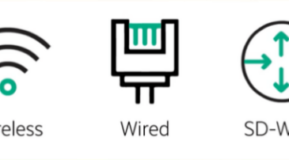Now that the leading smartphones and laptops support 802.11ac, organizations are starting to migrate the networks too. In fact, Aruba has turned up 802.11ac customers in the hundreds already! However, as with any technology, there are layers to the story.
The reality is that 802.11ac has been implemented differently by different vendors.
While the IEEE standard provides for a 1.3 Gbps top speed, the actual performance for each 802.11ac device (and even legacy clients) will vary dramatically by vendor.
If we use the AP-225 from Aruba as our benchmark, this is a brand new 802.11ac capable access point designed from the ground-up to leverage existing legacy wiring closet infrastructure and support high device-densities. The purpose-built AP-225 delivers top throughput of 713 Mbps for a three-stream 11ac client. Compare this to the two-year-old Cisco 3600 802.11n access point with the new add-on 802.11ac module and you only get a top speed of 512 Mbps.
Both APs are built around the same IEEE 802.11 standard, but why does the Aruba AP-225 deliver 40% better performance? It's the details that matter: hardware design, antenna design, choice of CPU and memory, software implementation and a lot more.
Before you even start pushing traffic through the AP, the hardware is very telling:
- Processor Speed: Processor speed can impact everything from client density to network reliability. The AP-225 features a dual-core 800 MHz processorwith both cores active. In contrast, the AP 3600 uses an older 800 MHz processor, which is expected to drop down to 500 MHz per core when both are used.
Advantage? Aruba's AP-225 has 60% faster processor speed!
- Antenna Design: The AP-225 also features optimally designed integrated antennas that provide great coverage while minimizing interference across the antennas. The modular design limits the antenna assembly to the surface area of the 802.11ac module (not the entire AP). This space limitation is catastrophic, greatly limiting the range and speed of the radios.
Advantage? Aruba's AP-225 has much faster throughput at range.
This cursory look at the hardware is an indication of significant performance differences.
Stay tuned for a blog series as we unveil more details about the industry leading Aruba AP-225 and the many benefits of moving to 802.11ac.




